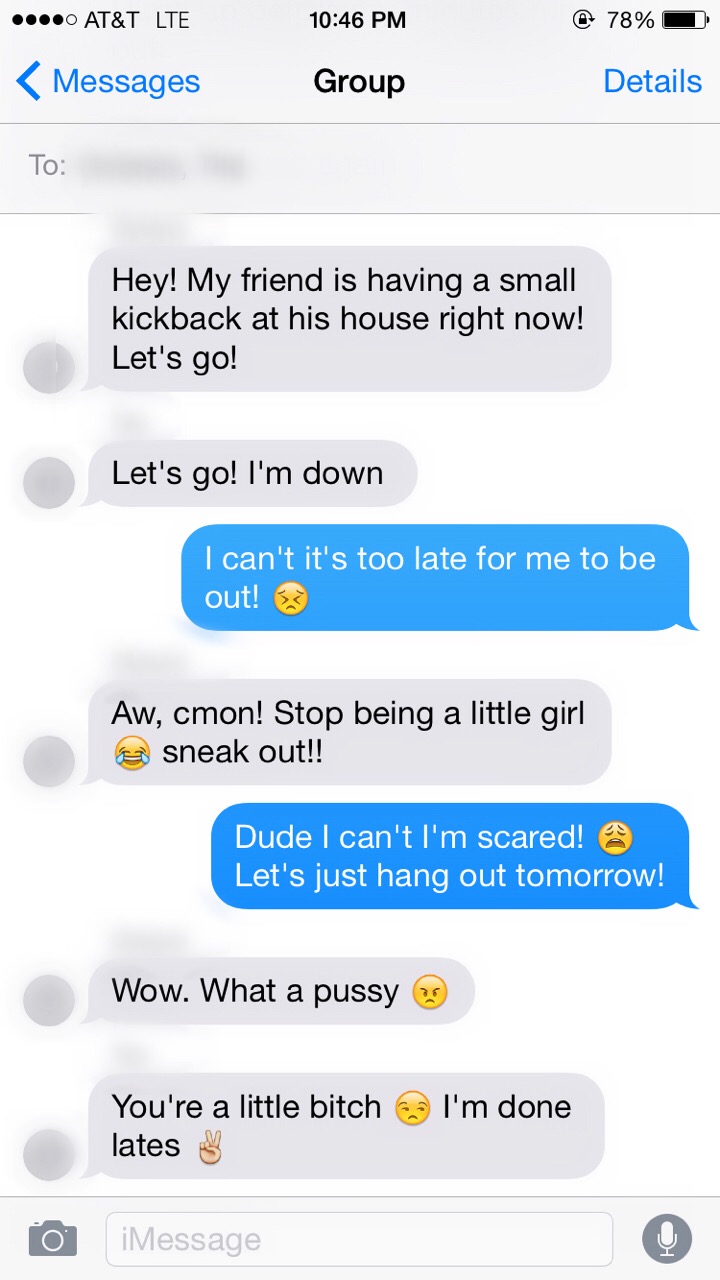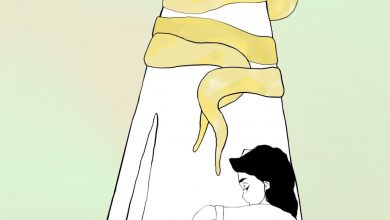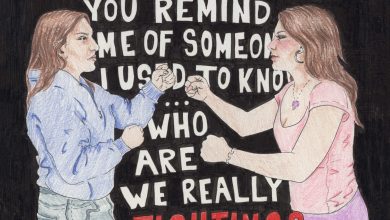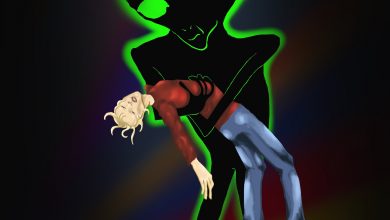Rethinking Problematic Insults: What Do They Truly Mean?

Far too many times have I heard insults such as “little bitch,” “pussy,” “gay,” “homo,” and several other variants, and far too many times have I stayed quiet and ignored the degrading meaning behind such insults. It wasn’t until recently that I began to think about what these statements really mean, and ever since then they stand out to me like an ignorant human in a crowded room. Okay, that wasn’t a very good analogy but that’s the vibe I get from people who utter such insults. To be fair, though, some people truly are not aware of the problematic nature of such utterances, and that’s something important to acknowledge.
These insults can arise from various natures and situations. When someone is afraid of something or is afraid to do something, a go-to sexist comment might be, “Stop acting like a little bitch/pussy/girl.” When someone expresses annoyance or complains about a nuisance, they might be “bitching/PMSing/being a girl.” In other words, being called a “girl” is considered an insult to both males and females, thus denoting that being a girl is an insult in and of itself. When something is displeasing or disappointing, it is “gay/homo.” And there are many more. What’s shocking is that I don’t even have to explain why these statements are problematic, most everyone can decypher their sexist or homophobic nature without assistance, but many will utter them regardless.
What’s worse is that the media, specifically mainstream music, contributes to the epidemic. Hip-hop artist J. Cole recently released a song entitled “Fire Squad,” in which he asks why someone is acting like a “ho” and a “bitch.” It is clear that “bitch” is being used to insult someone who is afraid of being ambitious. Although it is unclear why “ho” is being used as an insult, or why it is relevant to that portion of the song, he states it as an introduction to the song nonetheless. It almost feels as though some of these terms are thrown in there just to show power over submissive individuals in the industry. Because I did not understand why such terms are being uttered in the song, I took to a couple of websites that explored the meaning of the song. All of the analytical contributions suggested that the song is about J. Cole’s success as an established leader and teacher in the hip-hop industry and wants to declare his power. However, I’m curious as to why some phrases that are associated with the male sex are considered empowering (e.g. “grow some balls,” “man up,” “who’s the man”) but there are no empowering phrases associated with the female sex. On the contrary, they are usually used in terms of submissiveness and weakness, as is the case in this song.
I would like to make clear that terms associated with the female sex are not the only problematic ones. For example, “dick” is a problematic insult sometimes targeted at someone who is aggressive, abrasive, or inconsiderate, and is associated with the male sex. This can trigger and reinforce the stereotypical gender role that men are aggressive and should be forceful or hostile in order to be considered “real” men. Derogatory statements based on gender imply that someone is lesser primarily because of their gender, and that is never okay. This is where the problematic nature of such insults can arise from.
Even Urban Dictionary, known for its comedic vulgar nature, acknowledges the problematic nature of some insults. It recognizes that “gay” is an identity of homosexuality, and that it is also used as a term which “originated from homophobia.” It reinforces hypermasculinity, or the “exaggeration of male stereotypical behavior.” It also recognizes that “cunt” is a derogatory term associated with the female body, which then dehumanizes the female sex.
Confronting people about these problematic insults can be difficult. Let’s say I’m having a conversation with an acquaintance about what frightens us. The conversation is going swell until I declare that I’m afraid of spiders, and my acquaintance agrees by stating, “OMG me too, they make me squeal like a bitch.” Umm hold on…what is that supposed to mean? If you’re one of those people who feel like those types of comments are comparable to a loud screech from a chalkboard, then you may understand how difficult it can be dealing with such situations. However, nothing will change unless we are vocal about making changes to the problematic nature of insults. I’m no expert, but I can share how I’ve successfully and not-so-successfully dealt with this.
Several months ago I was not so comfortable with speaking up about what’s wrong. I would often hear the term (and identity) “gay” being thrown around as an insult, but I almost never expressed how uncomfortable its problematic nature made me feel. However, over the course of my time here at UCLA, I have learned not to be afraid of standing up for what’s right. When I overhear a friend using a problematic insult, I overtly and respectfully express that such insults make me feel uncomfortable, and that by uttering such insults they are in fact contributing to the stigmatism of certain issues (e.g. slut-shaming, homophobia, sexism).
However, it can be difficult expressing this to acquaintances, as one may not feel comfortable enough to express such discomfort about a serious situation yet. Something I have tried is asking, “What do you mean?” when an acquaintance utters a problematic insult. I have found that by rethinking the statement, one may become aware of its problematic nature (sometimes for the first time). That way, it becomes easier to express the discomfort it brings to me. Although I used to become angry in such situations, I have learned that it is important to be mindful of the fact that someone may not have bad intentions or may not have previously thought about the problematic nature of their insults.
The only way to put a stop to such derogatory language is by vocalizing its problematic nature. I encourage you to challenge the use of problematic insults the next time you hear them, and to withhold yourself from using such language; I promise it’s not difficult in practice.




